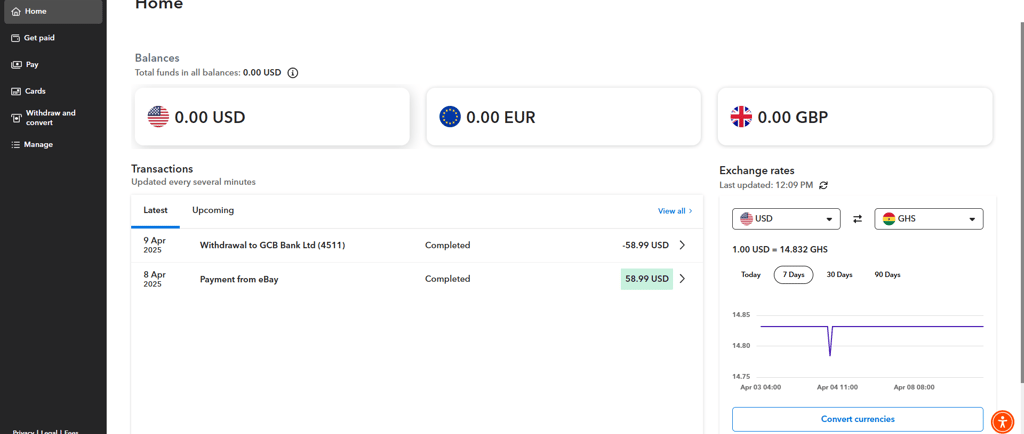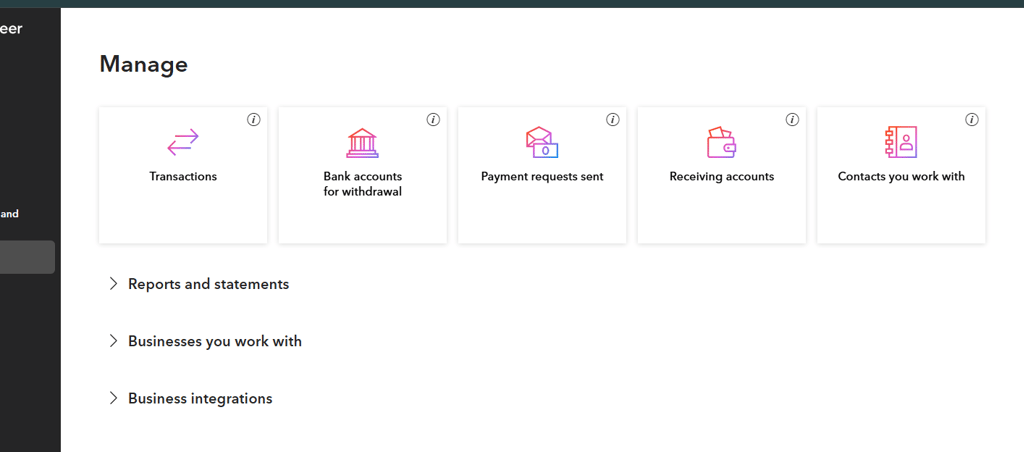Payoneer vs. Alternative Payment Solutions for Businesses: A Comprehensive Comparison
ONLINE BUSINESS
4/9/20255 min read


Introduction to Payoneer and Its Services
Payoneer is a pioneering financial technology company that specializes in providing online money transfer and digital payment services to businesses, freelancers, and professionals globally. Established in 2005, Payoneer has emerged as a key player in the fintech sector by offering practical solutions tailored to the needs of diverse users. One of its standout features is the provision of multi-currency accounts, which enables users to hold, send, and receive funds in various currencies without the hassle of traditional banking systems. This is particularly beneficial for businesses operating across borders, as it simplifies international transactions and minimizes conversion fees.
Another crucial aspect of Payoneer's offerings is its ability to facilitate global payment acceptance. Users can receive payments from marketplaces, networks, or clients around the world, allowing for seamless cash flow management. This capability makes Payoneer an ideal choice for online sellers and digital service providers who need a reliable method for receiving payments from various platforms such as Amazon, Fiverr, and Upwork. By leveraging Payoneer, these businesses can streamline their operations and enhance their financial productivity, contributing to overall growth.
Furthermore, Payoneer provides a hassle-free withdrawal process, enabling users to access their funds easily. Users can withdraw money to their local bank accounts, use Payoneer’s prepaid MasterCard for transactions, or make payments directly to suppliers and partners. Such versatility in fund management not only saves time but also helps users maintain greater control over their finances. As a result, Payoneer has gained significant traction among freelancers, online sellers, and businesses of all sizes seeking efficient and cost-effective payment solutions. Its growing popularity can be attributed to its user-friendly interface and comprehensive service offerings that cater to the modern business landscape.
Exploring Alternative Payment Solutions
In recent years, businesses have sought out various alternative payment solutions to meet their diverse transactional needs. Among the most prominent competitors in this space are Stripe, PayPal, and Wise (formerly known as TransferWise). Each platform offers unique features tailored to different business requirements, making it essential to evaluate them carefully.
Stripe is well-known for its developer-friendly approach, allowing businesses to easily integrate payment processing into their websites or applications. It supports a wide spectrum of payment methods, including credit and debit cards, digital wallets, and even bank transfers. The platform charges a standard transaction fee that typically hovers around 2.9% + 30 cents for each transaction. Stripe also boasts support for multiple currencies, making it ideal for businesses operating on a global scale.
PayPal is another widely recognized name in the online payment landscape. With its established reputation and user-friendly interface, PayPal is favored by many small and medium-sized businesses. Similar to Stripe, it offers various payment options and a straightforward fee structure, generally amounting to 2.9% + 30 cents per transaction. An advantage of using PayPal is its extensive presence, as many consumers already have PayPal accounts, making checkout seamless. However, some businesses have noted that PayPal’s customer service can be lacking, which may pose issues for larger enterprises.
Wise, on the other hand, focuses on providing cost-effective international money transfers. Its fees are generally lower than traditional banking fees, and it offers more favorable exchange rates. Wise is particularly effective for businesses that frequently engage in cross-border transactions. The platform allows for transfers in multiple currencies, although it may not be as suited for direct consumer transactions compared to Stripe and PayPal. Each of these platforms has unique strengths and weaknesses, so evaluating select features against expected usage is crucial for businesses looking to adopt an alternative payment solution.
Advertisement
Payoneer vs. Alternatives: A Detailed Comparison
When evaluating payment solutions for businesses, Payoneer stands out due to its range of services tailored to meet diverse needs. However, there are several alternatives that may better suit certain business models. In this section, we will perform a detailed comparison of Payoneer with its primary competitors, focusing on critical factors such as pricing, ease of use, transaction speed, and security.
Pricing is often a primary consideration for businesses when choosing a payment processor. Payoneer typically charges a percentage fee based on the transaction value and a flat fee for receiving international payments. On the other hand, alternatives like Stripe and PayPal have varied fee structures that may include monthly fees, transaction fees, and additional charges for currency conversions. Depending on the volume of transactions and the nature of the business, one solution may prove to be more economical than the other.
Ease of use is another essential factor. Payoneer's interface is intuitive, allowing users to swiftly navigate through features like fund transfers and payment requests. However, some users find alternatives, such as Square, to be even more user-friendly, particularly for those who engage primarily in point-of-sale transactions. User experience can significantly impact operational efficiency, particularly for startups and small businesses.
Transaction speed can vary across different solutions. Payoneer is known for quick fund transfers, particularly between accounts within its network. However, some competitors may offer instant transactions, which can be a decisive advantage for businesses that require immediate access to funds. Furthermore, the security of transactions is paramount; Payoneer employs industry-standard security measures, yet important alternatives also boast robust security protocols, which businesses must consider to safeguard financial data.
Customer reviews play a crucial role in assessing the performance and reliability of these payment platforms. Payoneer receives generally positive feedback for its efficient service and global reach, while some competitors have garnered acclaim for their unique features and customer support. By examining real-world applications and user experiences, businesses can make an informed decision on which payment solution aligns best with their operational requirements.


Conclusion: Choosing the Right Payment Solution for Your Business
As businesses increasingly operate in a global marketplace, selecting the appropriate payment solution becomes a crucial decision. Throughout this comprehensive comparison of Payoneer and alternative payment solutions, several key factors have emerged that can significantly influence your choice of payment provider. It is essential to consider these factors in alignment with your specific business needs to ensure a seamless transaction experience for both you and your customers.
Firstly, evaluating the size of your business plays a vital role in determining the most suitable payment solution. Larger enterprises may benefit from robust payment systems that can handle higher transaction volumes and offer advanced features such as multi-currency support and detailed reporting tools. Conversely, smaller businesses or startups might prioritize cost efficiency and simplicity, making platforms like Payoneer an attractive option due to their user-friendly interfaces and lower fees.
Secondly, understanding your target market is paramount. If your customer base spans across various geographical locations, selecting a payment solution that supports multiple currencies and payment methods is critical. Payoneer excels in this aspect, enabling businesses to easily cater to an international clientele. Additionally, analyzing the preferred payment methods in your target market will ensure higher conversion rates and an enhanced customer experience.
Furthermore, the transaction volume is another significant factor when choosing a payment processor. If your business anticipates rapid growth or experiences seasonal fluctuations, opting for a provider that can scale its services and adapt to your evolving needs will be advantageous. Payoneer’s flexible transaction limits and rapid fund release can be particularly appealing for businesses looking to navigate these dynamics effectively.
In summary, assessing factors such as business size, target market, and transaction volume will empower businesses to make informed decisions regarding their payment solutions. Understanding these elements will ultimately lead to a better fit between a business’s operational needs and the chosen payment platform, unlocking potential for growth and customer satisfaction.
Bukars | Gubmal Inc © 2024
Bukars, empowers the generation of tomorrow for a brighter future and hope for every individual.
